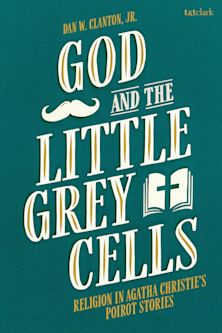- Home
- ACADEMIC
- Religious Studies
- Religion and Literature
- Early Modern Literature and the Bodies of a Reformed Eucharist
Early Modern Literature and the Bodies of a Reformed Eucharist
Early Modern Literature and the Bodies of a Reformed Eucharist
You must sign in to add this item to your wishlist. Please sign in or create an account
Description
Choice 2025 Outstanding Academic Title
Examining what the eucharist taught early modern writers about their bodies and how it shaped the bodies they wrote about, this book shows how the exegetical roots of the Eucharistic controversy in 16th century England had very material and embodied consequences.
To apprehend the nature of Christ's body-its nature, presence, closeness, and efficacy-for these writers, was also to understand one's own. And conversely, to know one's own body was to know something particular about Christ's.
Sandberg provides new insights into how Edmund Spenser, William Shakespeare, John Donne, and Aemilia Lanyer use the reformed eucharistic paradigm to imagine the embodied significance of the sacrament for their own bodies, the bodies of their narrative subjects, and the body of their literary work. She shows the significance of this paradigm was for poets and playwrights at this time to represent the embodied self and negotiate how the body was read, interpreted and understood.
Table of Contents
Chapter 1: The Body and Theology of a Reformed Eucharist
Chapter 2: Eucharistic Comedy and Shakespeare's Theatrical Bodies
Chapter 3: Spenser's 'massy mould' and the Body of Allegory
Chapter 4: Aemilia Lanyer's Communion of Readers
Chapter 5: Reading John Donne's Body
Conclusion
Index
Product details

| Published | 26 Dec 2024 |
|---|---|
| Format | Ebook (Epub & Mobi) |
| Edition | 1st |
| Extent | 184 |
| ISBN | 9781350452916 |
| Imprint | Bloomsbury Academic |
| Series | New Directions in Religion and Literature |
| Publisher | Bloomsbury Publishing |
About the contributors
Reviews
-
The book weaves together literary studies and religious studies with a fresh and materialist approach, and yields useful and important new perspectives on the assembled writers and texts.
Kimberly Johnson, Brigham Young University, USA

ONLINE RESOURCES
Bloomsbury Collections
This book is available on Bloomsbury Collections where your library has access.


































